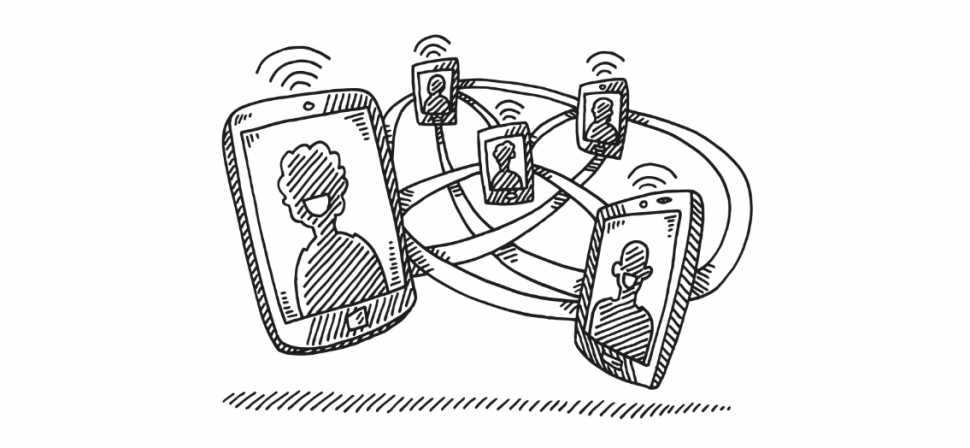Julia Duncan is an information technology consultant who works with the One Journey Coalition, a group that aims to connect people in America with refugees in order to change the narrative about refugee journeys. She has also hosted events to highlight organizations that use innovation and creativity to help refugees.
There are currently 68.5 million people who live as refugees, as asylum seekers, or are currently displaced within their home country. The entirety of this displacement is referred to as “the refugee crisis” by the media, aid groups, and politicians. While this may seem like a modern problem, the reality is that there are (and have been) hundreds of refugee camps and informal settlements around the world for decades. 23 current protracted refugee situations have lasted for more than 20 years. The Syrian refugee crisis, while certainly deserving of sustained attention and funding, is only a portion of the full picture.
NGOs, governments, and multilateral organizations have done incredible work to quickly develop apps, advanced systems, and new technology to aid refugees in retaining their digital identity, providing food aid, planning their journey, finding healthcare, and resettling into new communities. These services are essential and lifesaving. Many of these new technologies have been built with the help of a civic tech community that has been willing to provide support and thoughtful ideas. But perhaps the most eye opening and inspiring role technology plays within the refugee crisis is in fostering human connections.
Technology is a tool of empowerment for refugees. In my work as a food security expert, former State Department appointee, consultant, and avid volunteer, I’ve seen technology empower people in a range of different ways, from allowing people to tell their stories to creating art. Here are three inspiring organizations that are applying technology to foster human connection in innovative and compelling ways:
Empowerment along the journey
Tarjimly is a global community dedicated to improving the lives of refugees by eliminating translation barriers. Their new app-based service connects volunteer on-demand translators and interpreters in over 16 languages with refugees and humanitarian organizations. The ability to communicate and connect in real-time with healthcare providers, trauma counselors, aid workers, or those in a new community is invaluable. Their service matches refugees and translators in about 90 seconds. This new technology and its ability to foster human connections at critical moments has been used by thousands of refugees in just the past year.
Empowerment to share one’s story
One Journey Festival is a grassroots movement aimed at changing the narrative about refugees in the United States. Through the use of storytelling, technology, art, and culture, the movement is fostering connections between displaced people and host communities. In June, the organization hosted its first annual festival in Washington, DC, where thousands of people gathered at the National Cathedral to build connections between long-time locals and newly arrived Americans by enjoying food, music, art, and dance. The festival used a virtual reality experience developed by Amnesty International that allowed participants to tour a refugee camp, fostering a deeper understanding of the realities faced by refugees during their journeys. Additionally, Shared Studios allowed participants to connect with three refugee camps around the world to have live, 1:1 conversations. Using existing technology to foster community and gain mutual respect is fundamental to One Journey’s mission to build a welcoming society.
Empowerment to heal
Love Without Borders for Refugees In Need is a volunteer-led program providing art workshops for refugees living in Greece. The organization’s aim is to provide refugees with a source of emotional expression and economic self-empowerment while giving them a platform to spread awareness of the conditions in which they live. And, like many organizations operated by a small group of volunteers with limited overhead expenses, existing tech makes up the administrative backbone: Paypal, WhatsApp, NeedsList, and Facebook. Without these platforms, many of the organizations providing on-the-ground assistance to refugees would not be able to operate.
As these examples show, technology now plays a critical role in the humanitarian field, both to deliver aid and to foster human connection. Future refugee populations will likely be very familiar with technology, which means the aid community will need to balance traditional approaches to aid delivery with tech-based delivery. But because tech skills have not traditionally been a part of aid workers’ toolkits, the aid community will most likely increase its reliance on the civic tech community. We need to think strategically, about how the aid and tech worlds can best collaborate to create sustainable, secure, and meticulously designed technologies prior to the next, inevitable crisis.
How You Can Help: Think Small and Long-Term
When a crisis occurs, many people tend to direct their money and time toward well-known organizations in the field. But for those looking to volunteer within the refugee crisis, small- and medium-sized organizations are the places that need your help the most, and where you are likely to have the most impact. These smaller groups often don’t have the time to assess their most basic tech needs, let alone brainstorm ways in which technology could be beneficial to their clients. Many also lack connections to technologists who can help guide them in this work. Yet the immediate impact that these organizations can make is remarkable. If you do reach out to smaller organizations, keep in mind that they probably have limited resources to continue updating new technology. Be thoughtful about the maintenance of the proposed solution, or suggest the adoption of existing technologies that are maintained externally.
Take the first step: The One Journey Festival provides a list of local (to DC), national and international organizations supporting refugees. Many of these organizations use technology to foster human connection and deliver aid, and are looking for help and guidance.
